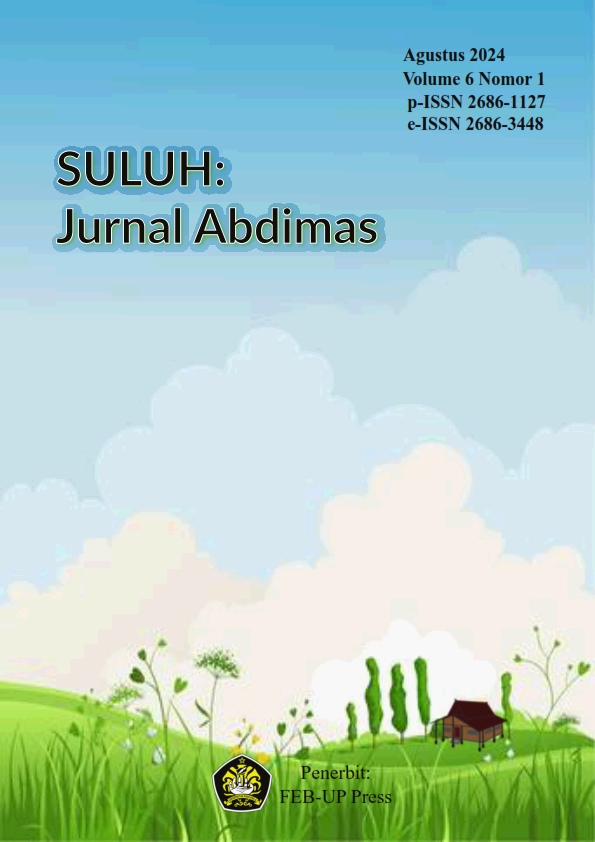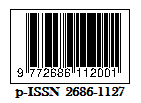EVALUATING GREEN ENTREPRENEURI AL MINDSET SHIFTS IN HIGH SCHOOL YOUTHS: CASE OF SMA YASPEN TUGU IBU - DEPOK
Abstract views: 47 | PDF downloads: 38
Abstract
Green entrepreneurship is a emerging field that combines environmental sustainability with business opportunities. This research examines green entrepreneurship mindset development for high school students at SMA YASPEN Tugu Ibu Depok. An training was conducted with 35 12th grade students to provide knowledge and shape mindsets on green business concepts and opportunities. Pre-post training surveys measured changes in perceptions. Results showed increased understanding of green entrepreneurship principles and product ideas. Participants gained creative thinking abilities to turn waste materials into economical products. Further research can expand training reach and assess real-world green business establishments by students. Fostering green entrepreneurial mindsets from early ages can propagate environmentally conscious business practices.
References
Corbett, J. and Montgomery, A.W., 2017. Environmental Entrepreneurship and Interorganizational Arrangements: A Model of Social-benefit Market Creation. Strategic Entrepreneurship Journal, 11(4), pp.422-440.
Demirel, P., Li, Q.C., Rentocchini, F. and Tamvada, J.P., 2019. Born to be green: new insights into the economics and management of green entrepreneurship. Small Business Economics, 52(4), pp.759-771.
Gast, J., Gundolf, K. and Cesinger, B., 2017. Doing business in a green way: A systematic review of the ecological sustainability entrepreneurship literature and future research directions. Journal of cleaner production, 147, pp.44-56.
Hockerts, K., Muñoz, P., Janssen, F. and Nicolopoulou, K., 2018. Advancing sustainable entrepreneurship through substantive research. International Journal of Entrepreneurial Behaviour and Research.
Idrus, S., Bookhout, B. and Zaimah, Z.A., 2022. Exploring sustainability reporting determinants for microenterprises. Journal of Small Business Strategy.
Jamil, C.Z., 2021. Enhancing the Business Performance of Micro and Small Enterprises Through Simple Accounting Training and Kaizen Implementation. In Proceedings of the International Conference on Industrial Engineering and Operations Management (pp. 2468-2474).
McGrath, R.G. and MacMillan, I.C., 2000. The entrepreneurial mindset: Strategies for continuously creating opportunity in an age of uncertainty (Vol. 284). Harvard Business Press.
Meyskens, M., Robb-Post, C., Stamp, J. A., Carsrud, A. L., & Reynolds, P. D. (2011). Social ventures from a Resource-Based perspective: An exploratory study assessing global Ashoka fellows. Entrepreneurship theory and practice, 35(4), 661-680.
Nikolaou, I.E., Ierapetritis, D. and Tsagarakis, K.P., 2011. An evaluation of the prospects of green entrepreneurship development using a SWOT analysis. International Journal of Sustainable Development & World Ecology, 18(1), pp.1-16.
Pihie, Z.A.L. and Bagheri, A., 2013. Self-efficacy and entrepreneurial intention: the mediation effect of self-regulation. Vaculty of Cognitive Sciences and Human Development.
Ploum, L., Blok, V., Lans, T., & Omta, O. (2018). Toward a validated competence framework for sustainable entrepreneurship. Organization & Environment, 31(2), 113-132.
Roxas, B., & Lindsay, V. (2012). Social Desirability Bias in Survey Research on Sustainable Development in Small Firms: An Exploratory Analysis of Survey Mode Effect. Business Strategy and the Environment, 21(4), 223–235.
Shepherd, D.A. and Patzelt, H., 2011. The new field of sustainable entrepreneurship: Studying entrepreneurial action linking "what is to be sustained" with "what is to be developed". Entrepreneurship theory and practice, 35(1), pp.137-163.
Ting, D., Wang, C., & Wang, H. (2021). Spatial spillover effects of high sustainability innovation on residents’ environmental behavior. Science of The Total Environment, 755, 142533.
Copyright (c) 2024 SULUH: Jurnal Abdimas

This work is licensed under a Creative Commons Attribution 4.0 International License.





















